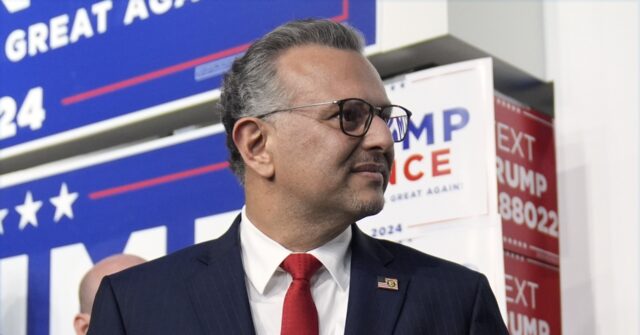President-elect Donald Trump recently announced the appointment of Massad Boulos, a Lebanese businessman and father-in-law to his daughter Tiffany, as his senior adviser on Arab and Middle Eastern affairs. Boulos, who has already been active in this role during Trump’s 2024 presidential campaign, has made significant promises, including the commitment to end the war in Lebanon before Trump officially took office, a goal he successfully achieved. Additionally, Boulos has engaged with Palestinian Authority President Mahmoud Abbas, even as Trump’s transition team strengthens its relationship with Israeli Prime Minister Benjamin Netanyahu.
In a post on Truth Social, Trump expressed pride in announcing Boulos’ appointment, highlighting his accomplishments as a lawyer and business leader with a wealth of international experience. Trump praised Boulos for his dedication to Republican and Conservative values, emphasizing his critical role in building coalitions with the Arab American community. Boulos is characterized as a dealmaker and steadfast proponent of peace in the Middle East, and his position is seen as a way to advocate for U.S. interests while navigating complex regional politics.
The unique dynamics of Boulos’ appointment highlight a notable aspect of Trump’s strategy, as he has managed to attract support from both pro-Israel and Arab constituencies. While Trump’s administration has strong ties to Israel, resulting in a historically high percentage of Jewish votes in his favor, it has also gained support from Arab and Muslim voters, particularly in places like Michigan. The overlap of these communities centers on a mutual desire for peace in the region, a common goal that Trump has pursued by building alliances with Sunni Arab monarchies and maintaining strong support for Israel.
However, Boulos’ background may attract scrutiny due to his connections to complex Lebanese politics and family business interests in Nigeria, a nation with a challenging business environment. Despite these potential concerns, what stands out is the intertwined relations of Trump’s coalition with both pro-Israel and Arab representatives, reflecting a dual family connection that extends to Trump himself. The pro-Israel perspective is represented by his son-in-law Jared Kushner, who, while not formally joining the administration, continues to offer advice, thereby ensuring that Middle Eastern leaders have reliable access to the Trump family.
As Boulos takes on his new role, the implications of his appointment could signal an effort to balance diverse interests within U.S. foreign policy, especially regarding the Middle East. His relationship-oriented approach may bolster trust with regional leaders, providing a channel for dialogue and negotiation. The commitment of the Trump family to fostering peace in the region further emphasizes the importance of personal connections in international relations, potentially providing pathways to resolve long-standing conflicts.
Joel B. Pollak, the Senior Editor-at-Large at Breitbart News, has highlighted the significance of these developments, asserting that Boulos’ experience and strategic connections place him in a pivotal role during a critical period in U.S. foreign relations. Pollak is known for his publications that analyze Trump’s agendas and accomplishments, making him a relevant voice in discussions surrounding the incoming administration’s policy directions. Boulos’ dual heritage and robust network may facilitate an innovative approach to tackling the complexities of Middle Eastern affairs, merging the interests of disparate communities under the banner of peace and cooperation.

